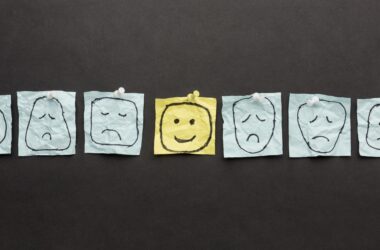Humans are social animals. We need other people in our lives, and the strength of our relationships has a big effect on our mental and emotional health. Being social can help with worry, anxiety, and depression, as well as boost self-esteem, bring joy and comfort, keep you from being lonely, and even add years to your life. On the other hand, not having many close friends could be bad for your mental and physical health.
Today, a lot of people use social media sites like Facebook, Twitter, Snapchat, YouTube, and Instagram to meet and talk to each other. Even though social media and mental health are useful, social media will never be able to replace talking to people in real life and Social Media Affect Your Mental Health. It needs to interact with other people in person to make hormones that lower stress and improve general health. Even though social media is meant to bring people together, it can actually make you feel more alone and make mental health problems like depression and anxiety worse.
It might be time to rethink your internet habits and find a better balance if you’re spending too much time on social media and it’s making you unhappy, frustrated, or lonely.
Let’s discuss how Social Media Affect Your Mental Health.
The Impact of Social Media on Our Well-Being
This is how Social Media Affect Your Mental Health:
Social comparison
Comparisons to others on social media might cause us to feel inadequate and have low self-esteem.
Cyberbullying
In order to threaten or intimidate another person, cyberbullying sometimes involves the use of electronic communication.
Fear of missing out (FOMO)
FOMO refers to feelings of loss of significance or excitement that others are experiencing.
Addiction
Social media addiction is a phenomenon in which an individual feels compelled to use social media excessively, even if it has a negative influence on their lives.
The Positive Side of Social Media
Although there may not be any psychological benefits to interacting virtually on social media compared to in-person contact, there are still many ways it can help you stay connected and improve your health.
- With the help of social media, you can: Keep in touch with loved ones all over the globe and share news and updates with them.
- Meet new people, join groups, and build relationships with those who share your interests and goals.
- Participate in or advocate for worthy causes; bring attention to critical issues.
- When things get tough, reach out for or provide emotional support.
- Locate important social connections if you, for instance, reside in an isolated region, suffer from social anxiety, have limited independence, or belong to a minority group.
- Discover a way to express yourself creatively.
- Carefully seek out resources that can teach you new things.
The Darker Side of Social Media
Social media affect your mental health and has drawbacks even if it might unite and cheer people up. Heavily using social media has been linked to a range of mental health issues, such as loneliness, hopelessness, and anxiety.
Bullies and harassers now more than ever find sanctuary on the internet. Cyberbullying can lead to depression, anxiety, and even thoughts and deeds of suicide. Younger users are more vulnerable to this kind of abuse, hence awareness of it is especially important. The way social networking encourages users to compare themselves all the time is one of its main disadvantages. The all too frequent images of other people’s perfect lives have the ability to make us feel less valuable and less confident in ourselves. Remember that when questioned about their lives, most people just share the highlights.
In the meanwhile, it is quite rare for people to feel depressed and alone after reading about parties, vacations, and other social gatherings on social networking. Because they could feel cut off from their peers, users under 30 may sense this fear more strongly. The flipside is that using social media excessively may make you feel alone. Overuse of the internet can erode interpersonal connections by undervaluing face-to-face contact. Never let real, in-person connections be replaced by the ease of social media.
Finding Balance: Using Social Media Mindfully
Here are some ways to find balance and reverse how social media affect your mental health:
Be Curated About Your Feed:
Please choose carefully who and what you follow. Remove accounts that make you feel envious or other negative emotions. View accounts that uplift and inspire you.
Set Limits and Take Breaks:
Figure out how much time you think is right to spend on social media, and then stick to it. One thing you could do is check social media once a day, but not right before bed. Setting a timer is another way to help you remember to stick to your healthy limits. A lot of smart phones can be set to send you alerts when you’re getting close to or past your set screen time limits.
Focus on Real-Life Connections:
Spend time getting to know people in person and keeping those ties going. Do your best to talk to your family and friends in person or over the phone.
Prioritize Sleep:
It can be difficult to get and stay asleep when you are worried and excited from scrolling and sharing. In the evening, avoiding social media can help you unwind and decompress. Avoiding blue light, which can disrupt your sleep cycle, means turning off your computer at least half an hour before bed.
Conclusion
Social Media affect your mental health and may bring us both benefits and drawbacks for our mental health. To find a balance between the two demands self-control, self-awareness, and a commitment to prioritizing our health. We need to control our online experiences, create in-person connections, and set time limitations for our use of social media in order to optimize its advantages while preserving our mental health. Remembering that we can control our online profile is essential to maintaining a good mind in the digital age.
FAQs
Mostly, a lack of in-person relationships links social media with social anxiety disorder. While those with social anxiety find solace in interacting with others online, doing so could also make it more challenging for them to communicate with people in person.
The reward center in the brain is activated by surfing the Internet, which releases dopamine, a “feel-good chemical” linked to pleasurable activities like eating, sex, and social contact. It is the purpose of the platforms to cause addiction, and they have been connected to depression, anxiety, and even medical conditions.
Though the relationship between the two disorders is unclear, using social media may make symptoms of social anxiety disorder worse.





